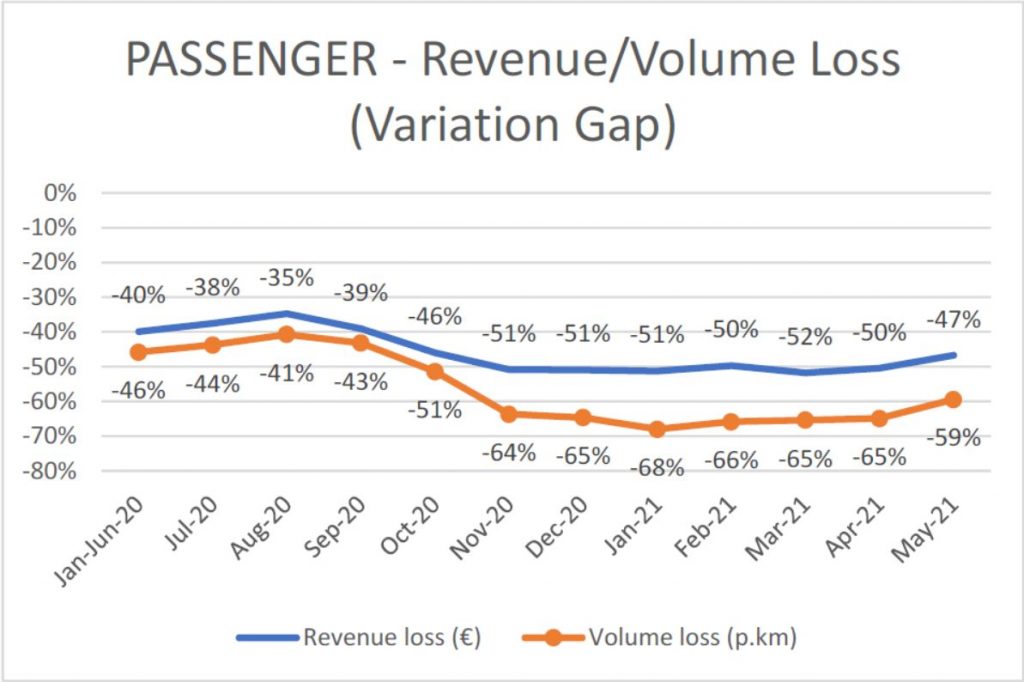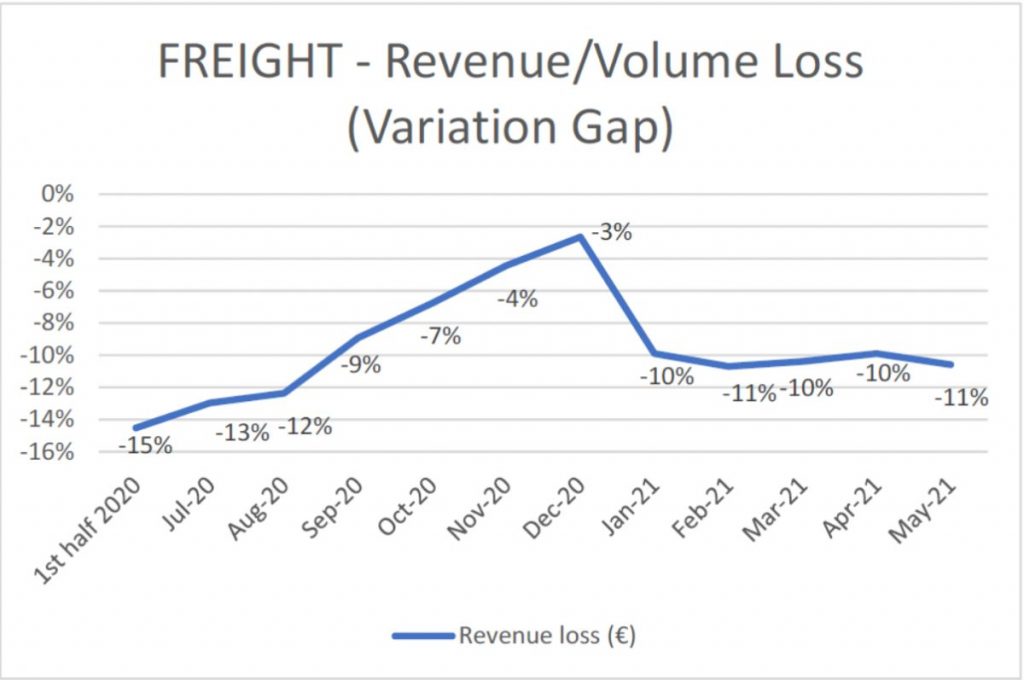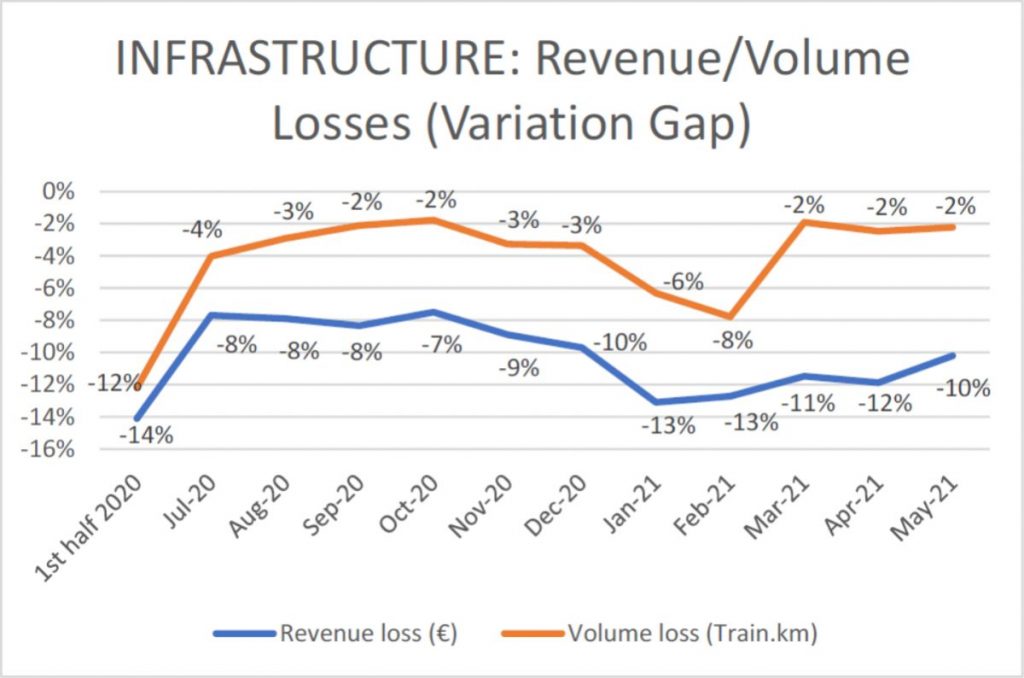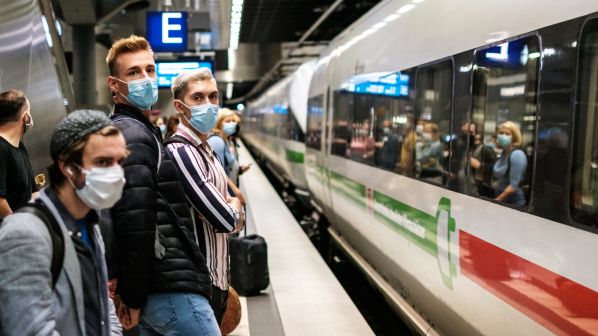EUROPEAN freight and passenger operators are continuing to feel the effects of the Covid-19 pandemic, with revenues showing little sign of improvement according to the Community of European Railway and Infrastructure Companies (CER).
CER says revenues from January to May 2021 have in fact worsened across the board, compared with the second half of 2020. According to the latest Covid Impact Tracker released by the association, monthly revenue losses since January 2021 have remained 50% lower for passenger services, 11% lower for freight services, and 12% lower for infrastructure services compared with 2029 levels.
Passenger volumes have dropped by 66% from November 2020 onwards compared with 2019 levels, recovering slightly to a fall of 59% in May. Revenue remains at around 50% less than pre-pandemic levels.

While freight volume data was insufficient for reporting, CER says those freight operators who provided data recorded an average 11% drop in revenues and volumes since January 2021.

Infrastructure volumes almost returned to normal levels from March to May, with train-km down 2%, while revenue losses persisted at 10% less than before the pandemic. Revenues and volumes tend to vary in about the same proportion for most infrastructure managers, apart from two which report significantly higher loss of revenue than volumes. CER says this is linked to reductions of infrastructure charges not compensated by their governments.

CER welcomes the European Commission’s (EC) decision in June to extend the EU regulation allowing member states to authorise infrastructure managers to waive, reduce or defer track access and reservation charges until the end of the year. CER says the rail sector also highly appreciates the approval by the EC’s Directorate-General for Competition (DG-Comp) of several state aid schemes which reduce rail track access charges.
However, CER says it should be noted that the estimated revenue losses for infrastructure managers appear much higher in member states where track access charges have been reduced, which shows that it is important that the reduction or waiver of the fees should always be accompanied by compensation to infrastructure managers for these financial losses.
“The commission’s state aid policy should be aligned with the EU environmental objectives,” says CER executive director, Mr Alberto Mazzola. “Sectors suffering roughly the same amount of losses in the EU as railways but, which are far less environmentally friendly, have received five-times more state aid to mitigate negative impact of Covid-19 than rail. It is crucial to redress this imbalance in support.”

